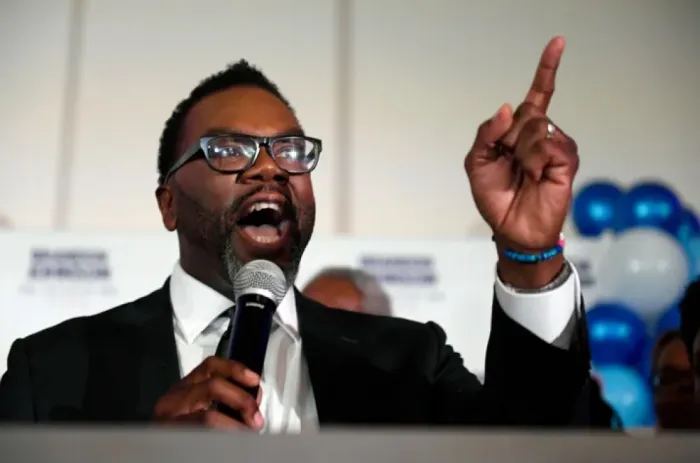CHICAGO, USA – In a stunning upset, progressive candidate Brandon Johnson, a former schoolteacher and Cook County commissioner, has emerged victorious in the highly competitive race for mayor of Chicago. Johnson overcame significant fundraising disadvantages, unfounded accusations of defunding the police, and unfavourable public polling to defeat his rival, Paul Vallas, the former CEO of Chicago Public Schools.
Johnson, a Black leftist with strong ties to the Chicago Teachers Union, outperformed Vallas, a white technocrat often considered a conservative figure within the Democratic Party.
The outcome of the election has significant implications for the activist left and may inspire similar political movements across the country.
In his victory speech, Johnson extended an olive branch to Vallas’ supporters, promising to be a mayor for all Chicagoans. He emphasised his commitment to making Chicago a more equitable and livable city, stating, “We will not allow the politics of old to turn us around. We are building a better, stronger, safer Chicago. We’re doing it together.”
Despite being outspent by Vallas throughout the campaign, Johnson’s unwavering support from the Chicago Teachers Union and other labor organizations played a crucial role in his success. His victory solidifies the growing trend of progressive education policies, marking a significant shift in the city’s political landscape.
In addition to addressing public safety concerns, Johnson’s platform includes plans to raise taxes on businesses and wealthy households to fund social programs aimed at reducing crime in the long term.
His proposals include reopening mental health clinics, expanding the city’s summer jobs program for young people, and avoiding further property tax hikes for city residents.
Johnson’s compelling message of investing in people resonated with many Chicagoans, garnering support from diverse voters. His election marks the beginning of a new era in Chicago politics, where progressive ideals and policies take centre stage in shaping the city’s future.
However, Brandon Johnson faces a challenging road ahead as he steps into the role of mayor. He will inherit many of the same public safety and fiscal challenges that plagued his predecessor, Lori Lightfoot, and may encounter significant political opposition from the Chicago City Council and interest groups such as the Fraternal Order of Police and major business organisations. Despite these obstacles, Johnson’s election represents a hopeful starting point for a more equitable and progressive Chicago.
Brandon Johnson Triumphs in Chicago Mayoral Election, Marking Progressive Victory







